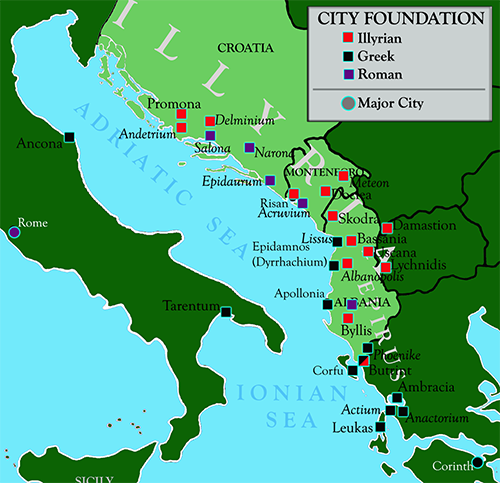Little is known about Trieu Thi Trinh, despite the fact that she lead an incredible life. At the age of 19 she led armies against the invading Chinese, and spent four years attempting to drive them out of Vietnam before commiting suicide after a defeat. Her birthplace is unclear, even her proper name is unknown (Trieu Thi Trinh translates to something along the lines of 'Lady Trieu'). Despite the mystery surrounding her, Trieu Thi Trinh, also known as Ba Trieu, has survived to become one of Vietnam's greatest heroines, and is still celebrated today.
Ba Trieu was likely born sometime in 225 CE. At the time, Han China had been occupying Vietnam for about 200 years, and their hold on the region had only gotten stronger. It had been more than a century since the Trung Sisters had risen up, and the Han had successfully removed Vietnamese rulers and officials from every position of power in the country. Chinese domination was so widespread that they commonly referred to the area as 'Am Nam', which, translated, meant 'conquered south'.
When Ba Trieu was the sister of the powerful southern leader, Trieu Quoc Dat. He had taken care of Ba Trieu after their parents died, and he himself was involved in a certain amount of rebellion. Therefor, it was no surprise when, at 19, Ba Trieu decided to get into the sedition game herself, despite her brother's counsel that she get married instead of cause insurrection.
Ba Trieu gathered her army of 1,000, and headed up the nearest mountain to train. Though this whole story is surrounded in myth, here is where it becomes really tricky to separate fact from fiction. According to legend, Ba Trieu was nine feet tall, with three foot long breasts which she tied back over her shoulders when fighting. She was beautiful, and had a voice like ringing bells. In battle, she lead her armies from the top of an elephant, dressed with ivory shoes and golden hairpins. She struck fear into the hearts of her Chinese enemies, and she and her army won over 30 battles.
Unfortunately, Ba Trieu's army was severely underfunded, and possessed no siege equipment. When they came to a Chinese fortress, they had to wait on the Chinese to come out and meet them. Ba Trieu also had an enormous weakness--she was very fastidious, and couldn't stand the sight of filth. One Chinese took advantage of this, and sent his army of men running out of the fortress naked, kicking up dirt and grime. Ba Trieu left the battlefield, and her army panicked, leading to a massive defeat. Rather than let her enemies capture her, Ba Trieu committed suicide by throwing herself into a river. She was only 23.
However, according to legend, Ba Trieu's harassment of the Chinese invaders did not end with her death. She haunted the Chinese general who defeated her, and spread an illness among the Chinese soldiers that could only be warded off by hanging wooden penises over the doorways of rooms one wished to occupy.
There are, unfortunately, very few actual specifics on Ba Trieu, and much of what that is known about her is shrouded in legend. However, there is some proof that Trieu Thi Trinh existed. Records of the Chinese governor over Vietnam at the time of Ba Trieu's life mention a short period of resistance, and contemporary artwork featuring a lady on an elephant leading an army has been found
Mythical or not, Ba Trieu has been a popular folk hero since the 200 CEs, and is the subject of several epic works still studied in Vietnamese schools. She was cited as the inspiration of many Vietnamese rebels after her, and has a temple dedicated to her, and many streets named after her, most notably in Hanoi and Ho Chi Minh City.
Sources
Modernity and My Mum: A Literary Exploration into the (Extra)Ordinary Sacrifices and Everyday Resistance of a Vietnamese Woman by Kim Huỳnh
Ba Trieu (225-248 CE)
Trieu Thi Trinh, the Vietnamese Joan of Arc
Vietnam Under Chinese Rule
 |
| Traditional Vietnamese artwork depicting Ba Trieu |
When Ba Trieu was the sister of the powerful southern leader, Trieu Quoc Dat. He had taken care of Ba Trieu after their parents died, and he himself was involved in a certain amount of rebellion. Therefor, it was no surprise when, at 19, Ba Trieu decided to get into the sedition game herself, despite her brother's counsel that she get married instead of cause insurrection.
Ba Trieu gathered her army of 1,000, and headed up the nearest mountain to train. Though this whole story is surrounded in myth, here is where it becomes really tricky to separate fact from fiction. According to legend, Ba Trieu was nine feet tall, with three foot long breasts which she tied back over her shoulders when fighting. She was beautiful, and had a voice like ringing bells. In battle, she lead her armies from the top of an elephant, dressed with ivory shoes and golden hairpins. She struck fear into the hearts of her Chinese enemies, and she and her army won over 30 battles.
 |
| Ba Trieu's temple, about 100 miles south of Hanoi. |
However, according to legend, Ba Trieu's harassment of the Chinese invaders did not end with her death. She haunted the Chinese general who defeated her, and spread an illness among the Chinese soldiers that could only be warded off by hanging wooden penises over the doorways of rooms one wished to occupy.
There are, unfortunately, very few actual specifics on Ba Trieu, and much of what that is known about her is shrouded in legend. However, there is some proof that Trieu Thi Trinh existed. Records of the Chinese governor over Vietnam at the time of Ba Trieu's life mention a short period of resistance, and contemporary artwork featuring a lady on an elephant leading an army has been found
Mythical or not, Ba Trieu has been a popular folk hero since the 200 CEs, and is the subject of several epic works still studied in Vietnamese schools. She was cited as the inspiration of many Vietnamese rebels after her, and has a temple dedicated to her, and many streets named after her, most notably in Hanoi and Ho Chi Minh City.
Sources
Modernity and My Mum: A Literary Exploration into the (Extra)Ordinary Sacrifices and Everyday Resistance of a Vietnamese Woman by Kim Huỳnh
Ba Trieu (225-248 CE)
Trieu Thi Trinh, the Vietnamese Joan of Arc
Vietnam Under Chinese Rule



